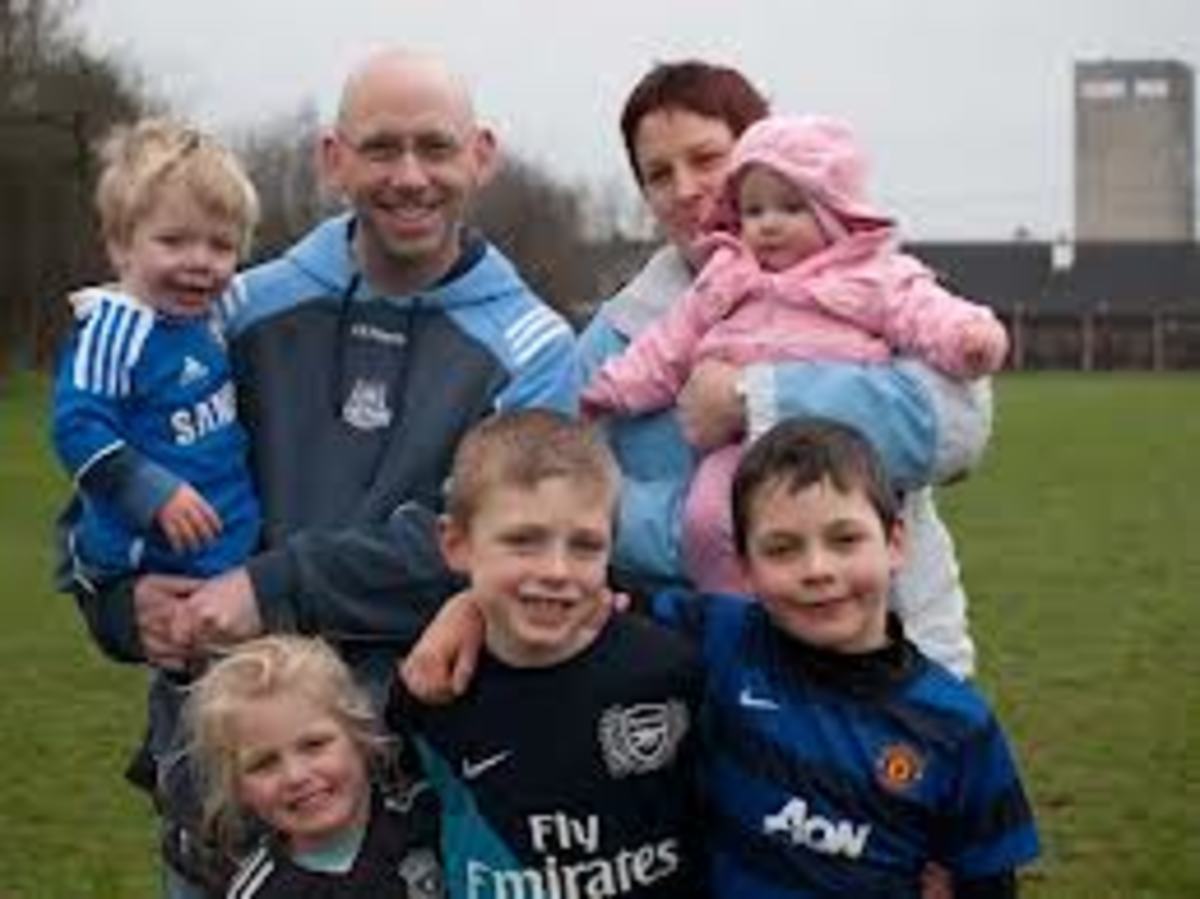MISPERCEPTIONS That People From Large Families TEND To Have About People From Small Families, Part II

Just LOOK At Them................They Have It So GOOD...............They Are SPOILED...........
(5) People from small families tend to be self-centered. Yes, many people from large families have hurled this prevaricative accusation to those from small families endlessly. People from large families believe that it is only they who know how to share with others. I hear some laughter on this-really?
To reiterate, it is those from small families who are more likely to share and be concerned with others because they grew up in plenty. Let us have an analogy, a person is well fed and have lots of food is more likely to share his/her food than a hungry person who has little or no food. Now, does that make sense? I thought so!
There are illustruous examples of those from small families who tirelessly share and are concerned with others. Actor/producer/comedienne Jerry Lewis tirelessly contributes in more ways than one regarding his yearly telethon for those with muscular dystrophy. Actor/producer/ dancer/ choreographer/singer Vanessa L. Williams tirelessly gives and donates her time to various charities including those for mentally challenged, abused, and socioeconmically disadvantaged children. In addition to that, she donates her time to homeless women and children. People from small families self-centered? Puh-leeeze, tell THAT nonsense to the marines!
Of course, children from small families are raised to have a higher sense of self and individuation than those from large families. In small families, children are often valued for their individual uniqueness. In fact, they are encourage to be individuals. They are taught that they are worthwhile of themselves and not cogs in a group.
In the small family environment, having a sense of self is not reviled and derided as being selfish. In fact, it is considered normal and an integral part of a child's development. Children in small families are taught that it is natural and normal to consider their needs and that they should always assert themselves in that regard.
As a result of this familial premise, children in small families can be quite assertive. They also are loathe to let others take advantage of them and to denigrate them emotionally, mentally, physically, psychologically, and verbally. They believe in getting respect and will brook no nonsense from others. They also are quite unafraid in going after what they want in life.
Children from large families are taught from the beginning that they individually are totally unimportant. They often must sublimate their needs and desires to that of the group. Such a daughter of a noted psychologist stated that she often sublimated her individual needs to that of her siblings. She further portended that the concept of individuality was never stressed in her family.
Many children of large families are quite loathe to express their needs and to go after what they want in life because to them, that is selfish. However, there are many children from large families who can be quite selfish in response to being told that they were anonymous of themselves. Such children learn to be highly territorial in order to exert their individual selfhood.
(6) People from small families must ALWAYS seek attention. C'mon now, please. Children who receive adequate or more individualized parental attention tend not to be seekers of attention. Case in point, me. I received plenty of individualized attention as a child. I received so much attention at home that I did not bother to seek it elsewhere. In fact, I could take the attention or leave it!
To this day, I can be described as completely understated. If you receive praise and accolades, beautiful, beautiful a multillion times. I also would be the first one to congratulate you. For example, in my first job, my supervisor indicated that I should be an acting supervisor while she was gone because I had leadership abilities. Well, another coworker, the oldest of 8 children, announced loudly and without provocation that SHE would make an excellent supervisor. She repeatedly this loudly for about 2 hours much to the annoyance of the supervisor in question. In other words, she was an avid attention seeker.
Another case in point was at my last job. A coworker who was the oldest of 6 children habitually proclaimed that she was smarter than everyone else. She further asserted that she was a jewel while the rest of us coworkers were illiterate peasants. She even asserted to the Director how astute she was and she was better than the job because she was the most educated and savvy so to speak. She wanted attention and she got it..........she eventually disappeared so to speak.
In other words, there are many children from large families who avidly seek attention because they received inadquate attention from their parents. An illustruous example of this is Madonna, 1 of 8, in her biography, who asserted that she became very vocal and aggressive in order to receive parental attention. A distant cousin of mine, one of 14, reported that she often brownnosed her siblings in order to receive even the most miniscule of parental attention. Despite the conception that people from small families avidly seek attention while those from large families do not, such is not necessarily the case, is it?
(7) People from small families have poor socialization skills. Now how many times have those from small families heard this? Children from small families socialize with their parents and sibling. Those who have no siblings, socialize with their parents. In addition to that, children from small families participate in activities which they socialize with other children from varied backgrounds and cultures.
Children from small families often reach to non-related friends and cousins. Remember, cousins. Cousins fulfill roles in small famililes, especially only children. Cousins are often the forgotten siblings and often fulfill the sibling role in small families, especially those of only children.
In addition to cousins, children in small families often have intense, close, and enduring friendships, Friends play an enormous role in the lives of many children in small families. Because children in small families have non-related friends from varied backgrounds, they tend to adopt and have a more cosmopolitan and universalistic attitude towards life. This is natural as they are exposed to backgrounds often different and varied from their familial background. By associating with a varied group of people, children from small families gain immense social and cultural skills which makes them quite at ease with strangers.
In contrast, the only companions that children from large families have are each other. This familial milieu can be emotionally and psychologically incestuous. What they learn and perceive is from their siblings. This is why many say that children from large families adopt a more insular and parochial focus regarding life because they are mainly exposed to the family milieu and nothing else. For example, my two maternal aunts only associate with each other and have no outside friends of any kind. In fact, they are quite timid and shy around strangers. Many people from large families report to having no outside and/or non-blood related friends at all. The only people they associate and interface with are their siblings.
In essence, there are many misperceptions that people from large families have about people from small families. This can be quite understandable especially if one group has little interaction with the other group. Also, there is familial inculcation regarding prejudices and thoughts regarding each respective family size. Yes, each family is different and there is no uniform system in the large and small family system. Each one is an individual consensus all to itself, no more and no less.
In summation, there are different size of families as there are different and varied types of people. All this is well and good. To advocate one uniform size of family is totally illogical as many people want different things regarding family life. Although each one leans to one size family or another, all should be accepted and respected as long as the most important people, our lovely, precious children, are provided for in the best fashion socioeconomically, emotionally, and intellectually in addition to being treated with fairness, humanity, and the utmost kindess and love.








